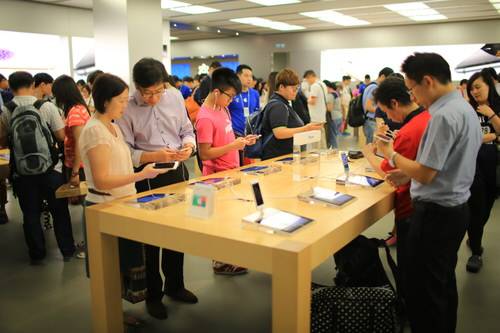
For Apple, China has been a great many things. Vendor. Partner. Customer. Competitor. Now perhaps one more thing can go on the list: Attacker.
Following Friday’s debut of the latest iPhone 6 in China, hackers spent the weekend targeting Apple’s iCloud data storage service. Apple acknowledged that it has suffered “intermittent organized network attacks” trying to glean user data when they sign in to iCloud.
As for who the perpetrator may be, security experts have one prime suspect in mind: the Chinese government.
Because surveillance.
China May Be “In The Middle”
The attacks appear to be of the “man in the middle” variety, a type that steps in between users and the sites they’re trying to access. Because these attacks relay data in both directions—to the users and to the legitimate site—people often don’t realize that a stranger is eavesdropping or pilfering their login information.
See also: In The U.S., The Feds Are A Bigger Threat To Your Phone Than Malware
A representative for security monitoring website GreatFire told The New York Times that the attack was either conducted by the Chinese authorities or parties sanctioned by them. The host servers for the attacks are only accessible by the Chinese government, the source said, or by state-run telecommunications providers.
“You think you are getting information directly from Apple, but in fact the authorities are passing information between you and Apple, and snooping on it the whole way,” said the GreatFire rep. Google, Yahoo and Microsoft have all suffered similar exploits for the same reason.
Michael Sutton, vice president for threat research at security firm Zscaler, seems convinced of the Chinese government’s involvement in the hack. “Evidence suggests this attack originated in the core backbone of the Chinese Internet,” Sutton told The NYT, “and [it] would be hard to pull off if it was not done by a central authority like the Chinese government.”
Previously, Apple’s cloud security hit the news when nude photos of celebrities Jennifer Lawrence, Kate Upton and others were stolen and circulated on the Internet. Like that case, this security breach does not appear to come from a systemic vulnerability or specific security hole.
For now, Apple updated its site to help users understand how they can protect themselves. The company offers advice on what clues users should look for in Safari, Chrome, Firefox and other major web browsers to ensure their connections are safe. It updated that page was updated today.
The iPhone 6’s launch in China had been reportedly held up for a month due to regulatory issues stemming from security concerns.
Lead photo by Lewis Tse Pui Lung for Shutterstock

















